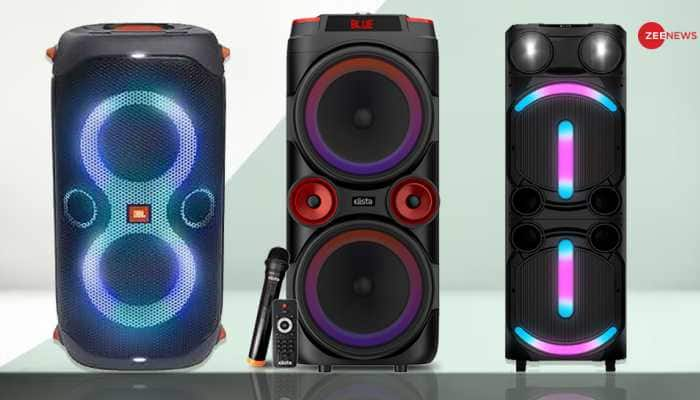Ischemic Cerebrovascular Stroke: Mithun Chakraborty Was Recently Diagnosed With It - Know Symptoms, Dos And Don'ts
One common kind of stroke is an ischemic cerebrovascular stroke, which occurs when blood flow is disrupted by an obstruction in a brain artery, usually brought on by a blood clot, say doctors.
- Anyone can have an ischemic cerebrovascular stroke, regardless of age, gender, or ethnicity
- High blood pressure, smoking, diabetes, high cholesterol, obesity, physical inactivity, binge drinking, and a family history of stroke are some of these risk factors
- Most stroke cases, or around 87% of all stroke cases, are ischemic strokes, say doctors
Trending Photos
) Mithun Chakraborty was diagnosed with an Ischemic Cerebrovascular Accident (Stroke) of the brain (Pic: ANI)
Mithun Chakraborty was diagnosed with an Ischemic Cerebrovascular Accident (Stroke) of the brain (Pic: ANI) Mithun Chakraborty, veteran actor-turned-politician, was admitted to a hospital in Kolkata on Saturday morning and was subsequently diagnosed with an Ischemic Cerebrovascular Accident (Stroke) of the brain. The statement mentioned that the actor was brought to the hospital with complaints of weakness in his right upper and lower limbs. So what is Ischemic Cerebrovascular Stroke? Dr Sonia Lal Gupta, Senior Neurologist & Director-Metro Group of Hospitals, and Dr Vipul Gupta, Director of Neurointervention and Co-Chief of the Stroke Unit at Artemis Hospital, Gurugram, share their insights.
What Is Ischemic Cerebrovascular Stroke?
One common kind of stroke is an ischemic cerebrovascular stroke, which occurs when blood flow is disrupted by an obstruction in a brain artery, usually brought on by a blood clot, says Dr Sonia Lal Gupta. "Because of this obstruction, brain cells are deprived of oxygen and nutrients, which eventually leads to their deterioration or death. Most stroke cases, or around 87% of all stroke cases, are ischemic strokes," says Dr Gupta.
Who Can Develop Ischemic Cerebrovascular Stroke?
Anyone can have an ischemic cerebrovascular stroke, regardless of age, gender, or ethnicity. Nonetheless, a few things make having this kind of stroke more likely. "High blood pressure, smoking, diabetes, high cholesterol, obesity, physical inactivity, binge drinking, and a family history of stroke are some of these risk factors. A person's chance is also increased if they have certain medical disorders, such as atrial fibrillation, or an erratic heartbeat," Dr Gupta adds.
Also Read: Weight Loss After 30: 5 Expert Tips Women Can Follow To Lose Extra Kilos - Check Expert's Advice
Symptoms Of Ischemic Cerebrovascular Stroke
Depending on which area of the brain is damaged and to what degree, an ischemic stroke can present with a variety of symptoms. "A severe headache without a known cause, dizziness, loss of balance, or coordination issues, abrupt weakness or numbness of the face, arm, or leg, especially on one side of the body, confusion or difficulty understanding speech, trouble speaking or slurred speech, and sudden trouble seeing in one or both eyes are common symptoms," says Dr Vipul Gupta.
Ischemic Cerebrovascular Stroke: Dos and Don'ts
Dos:
- Respond Quickly: When treating ischemic strokes, time is of the essence. Seek emergency medical attention immediately.
- Be Calm: Stay calm and composed all the time
- Note The Time: Remember or note down the time when the symptoms began.
- Follow All Medical Advice: As said and prescribed by an expert, follow all pieces of advice for the best and highest chances of recovery
Don'ts:
- Don't Ignore Symptoms: Do not disregard symptoms, even if they appear to get better or go away. Seek immediate medical assistance.
- Don't Drive Yourself To The Hospital: Do not try to drive yourself to the hospital if you are suffering stroke symptoms. Instead, call an ambulance.
- Don't Waste Time: As they say, time lost is brain lost in the case of a stroke.
Stay informed on all the latest news, real-time breaking news updates, and follow all the important headlines in india news and world News on Zee News.
Live Tv







)
)
)
)
)
)
)
)
)
)
